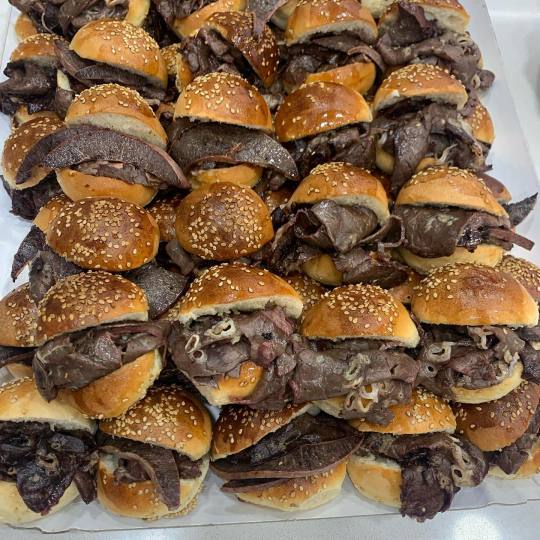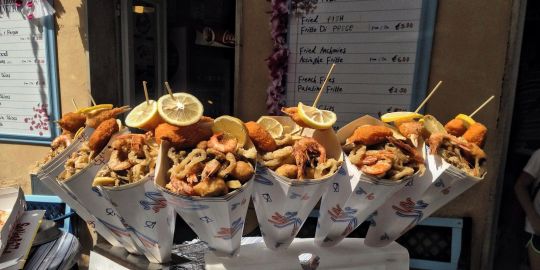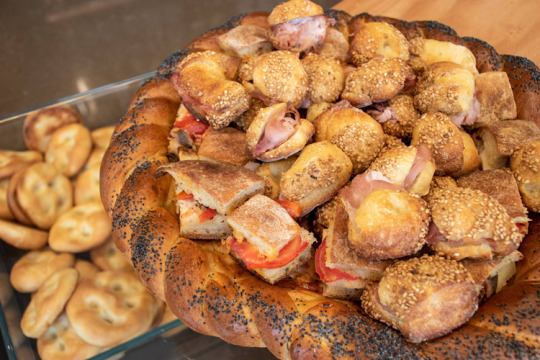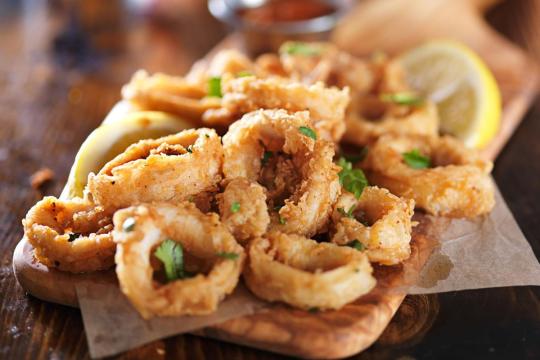#spusa
Explore tagged Tumblr posts
Text
Got a $50 bonus on my $125 project milestone and I got reimbursement coming in the mail for being an SPUSA elector 😎 all I need now is a real job
4 notes
·
View notes
Text
that's because the origin of the word faggot and fascist are the same thing
the use of the word faggot refers to a bundle of sticks as well, and it was applied to gay people because they were rolled into carpets and burned alive
the modern context of faggot is one used derogatorily by fascists against queerfolk and transfolk and its antithesis of being reclaimed by the same people it's used against
given that the simpsons is intentionally designed to be a controversial show that challenges political norms and has consistently taken socialist stances (bar the now-passing era of corporate zombie simpsons), to assume that this scene is meant to promote fascism speaks to media illiteracy
i dunno about you, but i would much rather be a faggot than a fascist
if anything this simple joke should be seen as a call to action given fascists are extremely good at organizing and—to be blunt—leftists are kinda fucking bad at it
as an extremely potent example, there are 22 leftist parties in the US (albeit the supposedly castroist party is pro-israel, and i would not consider them leftist) whose memberships are so fractured that none of them could achieve ballot access in more than a handful of states, much less their home states
half of the membership of CPUSA comes from reddit, the big tent SPUSA party is so shit at advertising that they only have a few thousand members and there's been no media coverage of their presidential candidate, and the syncretic DSA is losing thousands of members annually
it would be very prudent for these 22 (or perhaps 21) parties to merge into a single party and work as one pan-leftist party with ideological blocs rather than infighting, and it would be especially prudent for dues not be a requirement for membership to open accessibility to the poor, as well as diverting a chunk of their donations towards actually advertising the party on youtube, social media websites, television, both AM and FM radio, and even possibly billboards
we have been so awful at organizing that it presents the illusion that leftists are a minority despite the vast majority of americans being disillusioned with the rightist democratic and republican parties, which would be more aptly described as neoliberal and fascist, respectively—albeit the democratic party is becoming more blatantly fascist and the are effectively one party exercising democratic centralism


#the simpsons#lesbian#gay#bisexual#transgender#queer#lgbt#lgbtq#socialism#communism#leftism#leftblr#politics#us politics#american politics
141K notes
·
View notes
Video
Mimi Soltysik’s segment starts at about 24:47
5 notes
·
View notes
Note
Hey! I saw your post about spusa. I'm considering joining; are you a member and what are your thoughts?
I'm not a member (yet, maybe if I could convince a reading group comrade to join with me), but I think they're a valuable pluralistic and electorally-focused socialist party with a decent system of internal democracy, and I wish more Marxists dedicated their energies to it than DSA.
6 notes
·
View notes
Text
This is true for voting Democratic, but I'd argue that voting for a socialist minor party (Greens, SPUSA, etc) does still matter. For one thing, most of these parties have platforms that are miles better than the Democrats'. The Democratic Party might poach the occasional idea from them, but it's always watered-down and half-assed if it even gets anywhere, because Democratic leaders only want to do the bare minimum to retain power and fighting to actually improve people's lives is too much effort. These minor parties are used to fighting tooth and nail for every slight gain, and to me that means they're much more likely to fight legal and political obstacles to enact their policies should they get into power.
There are, of course, significant obstacles to these parties winning elections, but I believe that those obstacles can be overcome with enough popular support (and then the obstacles can be dismantled from behind). I think there are enough eligible but inactive voters who are far-left to carry at least one of these parties to victory, especially since these voters otherwise being inactive means the Democrats aren't likely to be able to guilt-trip many of them into voting blue instead.
Voting will absolutely (unfortunately) be easier for some people than others, and it isn't a magic bullet by any means-- meaningful change still comes from the working class building and defending alternatives to capitalist structures of support and power like community and mutual aid groups and unions. But for people who can vote, I think voting for a socialist party is a much better form of "damage control" than voting Democratic is, and can lead to policies being implemented that make revolution easier to boot.
Miguel Cardona, Secretary of Education for the United States: "Sowwy :( The Supreme Court told us we aren't allowed to follow through on the debt relief for students that Joe Biden promised :( And also we're ending the interest payment relief period :( But don't worry :) We'll keep fighting for you!"
god i'm so so so so sick of this shit. voting does nothing when the entire system is built upon ensuring that it can do nothing even when legislators are allegedly trying to do otherwise. any instance voting blue "does something" in america is due to a massive amount of unrelated factors such as lobbying, organizing, community aid, re-enfranchisement, millions upon millions spent on advertising, "we need to give these idiots a bone so they'll think voting does something sometimes" and national+international pressure. i'm so tireeeeeed
618 notes
·
View notes
Photo










SICILIAN STREET FOOD - Cazzilli e panelle, pani ca meusa, cartoccio frittura, panini, arancino, sfincione, anelli di totano, panino con la mortadella, pitone con scarola, Cannolo.
Sex and Food: La Dottoressa Pinuccia Barbera.
Uscì dall’ascensore e si guardò intorno, osservando le tre porte che apparivano sul pianerottolo. Strinse l’impermeabile che ne copriva le forme e andò decisa verso quella centrale portandosi dietro il trolley. Sulla porta, per non suonare nel posto sbagliato, lesse la targhetta d’ottone che recitava “Dott. Pinuccia Barbera” Suonò con decisione ed udì un ciabattare ed un girare di chiavi fino a che non si apri una stretta feritoia tra i battenti della porta. “Siiii??” Fece un volto tondo con due occhi azzurrissimi ed i capelli scuri che formavano una grande nuvola riccia. “ Mi manda l’agenzia … è lei la Dottoressa…?” Gli occhi del volto si allargarono eccitati “Si … entri …” Si spostò di lato e fece entrare la donna che la superava in altezza di almeno quaranta centimetri, poi, osservando che nessuno fosse sul pianerottolo chiuse velocemente la porta. La stangona entrò dritta senza curarsi di lei, incamminandosi lungo il corridoio guardando le varie stanze che su di esso si affacciavano. Vedendo il salotto vi entrò decisa. Osservò il divano moderno in pelle e con un malcelato disprezzo un tavolino roccocò con le gambe curve disposto davanti ad esso, tra le due poltrone in pelle messe a lato. Guardò la donna con qualche chilo di troppo vestita con una vestaglia di seta color fucsia. Notò, con una certa soddisfazione che sotto la vestaglia era nuda: le avrebbe fatto risparmiare tempo. “Ha il contante?” disse la stangona sistemando la sua lunga coda di cavallo. La cicciotta ciabattò fino ad una credenza roccocò posta sotto un enorme specchio antico e prese una busta portandola alla bionda dai lineamenti asciutti e duri. “Ecco avevo preparato tutto … li conti” La stangona aprì la busta facendo scivolare il dito sulle banconote chiuse li dentro. Finita la conta sorrise. “Bene – poi con un tono deciso e severo le ordinò - sposta quel tavolo più avanti e mettiti dietro di lui” Mentre la cicciona obbediva lei si levava l’impermeabile mostrando il suo corpo longilineo dall’enorme seno che sembrava straboccare dalla sua tuta nera aderentissima. Portò il trolley a lato del tavolo e prese un righello di quaranta centimetri e largo tre e, sorridendo, battendo il righello sul palmo della mano mentre la cicciotta spostava il tavolino, una volta eseguito il suo ordine, si mise davanti a lei. Le girò intorno con uno sguardo di disprezzo. La cicciona era imbarazzata ed abbasso gli occhi. La stangona tornata di fronte alla cicciotta, con il righello appoggiato al mento di lei le sollevò il volto fino a che i loro occhi non si incontrarono. La stangona sorrise e le spostò una ciocca che le cadeva sugli occhi. Anche la cicciona sorrise ma d’improvviso l’altra le strappò la vestaglia di dosso con un ghigno. La cicciona arrossi e, restando nuda, cercò di coprirsi. La stangona fece un sorriso cattivo e appoggiandole una mano sulla testa, la spinse verso il basso facendola inginocchiare. La cicciotta abbassò gli occhi, tutta rossa in volto e, vergognandosi, si coprì con le mani il seno e il pube. “Fai schifo … - disse la stangona colpendola sull’immenso sedere con il piatto del righello – sei un ammasso di carne senza capo ne coda” E giù un altro colpo Gli occhi dell’obesa si inumidirono e sulla bocca spuntò un piccolo broncio. “Come donna sei inutile … tu sei solo una schiava del cibo … - fece la stangona avvicinandosi al trolley si chinò rialzandosi con un enorme vassoio ripieno di cazzilli, arancini, sfincioni, pitoni fritti e mettendolo sul tavolino di fronte alla cicciona – sei solo la puttana del cibo e allora, fai quello che sai fare meglio, fai la puttana: mangia!” Le gridò la Mistress con fare cattivo colpendola ancora con il piatto del righello La cicciona allungò timidamente la mano e prese un cazzillo di patata portandolo timidamente alla bocca “Non cosi – le gridò la Mistress cattiva – mangia come veramente vorresti mangiare, con ingordigia e lussuria, come l’obesa che sei…” La cicciona incominciò ad allungare le mani a prendere cazzilli, pezzi di focaccia con le melanzane, le patate e la cipolla, pittoni ripieni di mozzarella e scarola, riempiendosi la bocca e guardando timorosa la Mistress. Quest’ultima si avvicino al Trolley prendendo un vassoio di arancini e mettendolo sul tavolino nello spazio lasciato libero dai rustici mangiati. La cicciona, con le mani pieni di cibo prese un arancino dandogli un morso mentre sul grosso seno le colava il ragù con i piselli ed i pezzi mortadella “Fammi vedere quanto sei ingorda, fai mangiare anche il tuo corpo, dagli sazio..” E preso un arancino glielo schiacciò sul seno spalmando il riso dove colava già il ragù. “Dillo che ti piace – le gridò la Mistress dando un colpo con il righello sul sedere della donna – fammi sentire quanto ti fa godere…” “Si, sono la sua schiava – disse la cicciona piangendo - lui fa di me quello che vuole, mi violenta di trigliceridi e colesterolo “ e si schiacciò un arancino sul petto e schiacciandolo lo distribuì in ogni parte del suo corpo “Fammi tutto, sono la tua schiava, - continuò la cicciona osservando il riso e la crosta croccante rimaste sul suo seno mentre il sugo le scivolava sulla pancia - sei il mio signore, io vivo solo per te, sei il mio Dio” disse con devozione e disperazione piangendo ma d’improvviso chiuse gli occhi sul volto le apparve una maschera di intenso piacere. Prese un altro arancino e mordendolo se lo schiacciò sulla faccia mentre un altro lo schiacciò sulla pancia prominente scendendo verso il basso. L’altro lo fece scendere sul fondo schiena facendo colare il sugo lungo la prorompente rotondità del sedere mentre la Mistress la picchiava con il righello. Lei, per ripararsi si avvicinò al tavolino divorando come invasata un pitone e rotolandosi nei pezzi di cibo sparso sul pavimento come fanno i maiali nel fango “e ora fammi vedere quanto ti piace il tuo padrone cibo, fammi vedere quanta dignità sei disposta a perdere per esso…” “No la prego..” fece singhiozzando la cicciona, inginocchiandosi davanti alla sua padrona e guardandola. La Mistress si era già chinata sul Trolley tirando fuori una scatola che appoggiò sul tavolino e aprendola mise davanti alla dottoressa un vassoio colmo di cannoli “ No … per favore … la prego ..” incominciò a piagnucolare la cicciotta. “Tu non sei nulla per chiedere … è il tuo stomaco che comanda, la tua lussuriosa lasciva voglia di cibo, è la tua sottomessa passione per il tuo signore e padrone che ti comanda …” avvicinandosi le sollevo la testa e guardandola fisso negli occhi e dopo averle sorriso in modo cattivo le abbassò con un dito la mandibola e le ficcò d’improvviso un cannolo in bocca urlando “Mangia!!!” La cicciona quasi si soffocò piegandosi sulle ginocchia tossendo “E’ inutile che fai la scena, si vede che ti piace sentirtelo scendere in gola, ma ora è il momento di farlo godere – si avvicinò e prendendo un altro cannolo e glielo mise tra le cosce sotto al pube – schiaccialo! fagli uscire tutta la ricotta che ha” La cicciona respirava rumorosamente con il naso con in bocca ancora metà del cannolo incominciò a stringere le cosce sempre più forte. La Mistress si avvicinò e le diete un colpo con il righello urlando “più forte…” il cannolo si ruppe e la ricotta schiacciata schizzo in tutte le direzioni allargandosi sulle cosce e sui peli del pube. Nello stesso momento la cicciona lanciò un mugolio di piacere e si accasciò sul pavimento con le cosce che le tremavano ancora per l’onda di godimento che l’aveva travolta, mentre le sue mani le spalmavano addosso in maniera automatica tutta la ricotta. Ad occhi chiusi continuava a mangiare con immenso piacere il cannolo che aveva in bocca. La stangona guardò l’orologio e incominciò a chiudere il trolley e a prendere l’impermeabile. “Dottoressa se avesse bisogno di me la prossima settimana non posso venire chi si spusa me soru. Sono disponibile solo a fine mese…” Da dietro il tavolino, dove era finita la cicciona, si sentì solo un mugolio di assenso e il suono della buccia di un cannolo che si rompeva. “Si metta d’accordo con l’agenzia che mi mandano un messaggio. Ora la saluto che ho un ragioniere che mi aspetta nella pasticceria Irrera” Si sentì un altro mugolio di saluto La stangona si avviò nel corridoio e velocemente uscì dalla porta. Nel salotto una mano della cicciona spuntò da dietro il tavolino ad esplorare il vassoio di cannoli e, toccatone uno, lo afferrò facendolo scomparire sotto il tavolino. Si sentì sgranocchiare la buccia del cannolo e un mugolio di compiacimento sottolineo l’insano gesto di dolcissimo autoerotismo.
29 notes
·
View notes
Text
Sa stii ca doare... cand iubirea-i mare
O vorba spusa-n vant...cutremură pământ
As vrea sa cred, sa stiu, sa fii
Omul ce-mi va stralucii ce va zambii
Cand inima-i va dainuii.
5 notes
·
View notes
Text
Nu poti repara cu o scuza spusa doar de umplutura, ce ai daramat dintr-un munte de pasare.
27 notes
·
View notes
Note
real talk what is the solution to not voting for biden? everyone could boycott the election maybe, but who's going to even attempt to organize that? how would you get everyone in the country on board for that on such short notice? im not trying to say like "fuck you just vote for biden" but everyone talks about this situation without offering any alternatives, only pointing out how voting for the lesser evil is still voting for evil. what else are we supposed to do if not force biden to bend?
Im tired and heading to bed rn so I'm just gonna try my best to give you a quick coherent answer:
It depends on what "solution" you want
If it's about the larger fight for anti-facsism and anti-capitalism, let me know and I can litterally link you endless material on organizing, protest tips, I'll help hook you up with groups near you if that's what you need, ideas for direct action are already scattered around this blog, you'll need to get more specific because I can give you so many goddamn solutions you could not believe. Solutions out the ass!
If it's: "how do I use my vote?" I don't care very much honestly. I won't put you on a voted-for-biden block list or write a callout post, I promise. If you're just a huge fan of voting I guess you can look into the dude the greens and spusa are running, he seems decent enough.
If it's "how do we get rid of little hands convfefe Cheeto president". .... Sorry, he is awful, I get it, I really do, but that's not my top priority. I'd implore you read up on US history before claiming that he's some new unique unprecedented evil.
16 notes
·
View notes
Text
Nu am mai scris de multa vreme,nu s-au schimbat foarte multe. Viata mea este pe același curs plutitor,sa spun ca un pic mai bine,de ce bine,pentru ca au dispărut certurile cu mama,si imi place ca nu imi mai da motive sa tip la ea,ma doare când fac asta .
Dar exista o paranteza la certuri,este fratele meu,care de la un timp încearcă sa ma amenințe,cu tot felul de discuții care nu sunt adevărate nici 1%,il las sa își vadă de drumul lui,de relația lui...nu de a mea.
Dar despre mine,ce sa spun,sunt bine,am tot ce îmi doresc și ce iubesc lângă mine,doar el reușește mereu sa ma tina pe picioare. În acest blog,este vorba numai despre el,cum mi-a dat puterea de a vedea,de a simțit iubirea îndeaproape si la distanta,cu bune,cu lipsuri dar si cu ajunsuri. Am momente când vreau sa ii mulțumesc ca m-a scos din acea lume in care traiam,inchisa,in care vedeam doar roboti.Acum ma uit in jurul meu și vad alta persoana in mine ,mai încrezătoare,mai vesela,aranjata,stie cand vrea un lucru,m am învățat sa am tot ce îmi doresc,si tot ce îmi doresc cel mai mult este mereu in fiecare zi,iubirea lui. Sfârșitul acestei luni o sa vina cu o noua varsta pentru el,am crescut și ne-am dezvoltat unul sub ochii celuilalt,chiar dacă nu am fost mereu impreuna,dar 6 ani totuși contează,i am învățat stările,si el mie fără a fi nevoie sa le spunem,le simțim. Sau poate au fost multe persoane care au vrut sa ne despartă,dar nu au reușit,din cauza asta,ca destinul este al nostru,sa fim împreună. Abia aștept sa vina ziua când o sa fie plina de urări,iubire spusa,amintiri pe care le avem impreuna in tot acest timp. Te iubesc atat de mult încât as face orice pentru tine,si sper sa iti dai seama,ca doar pe tine te am! Prin tine pot respira,pot trai cu adevărată!
Simt nevoia sa scriu,sa imi pun toate gândurile aici,dar uneori nu le găsești pentru ca le simtit prea mult,si nu au cuvinte sa le descrii.
3 notes
·
View notes
Link
So between 1919-1920, the US had Soviet councils set up in Buffalo, New York; Vulcan, West Virginia; and Seattle, Washington. On March 4, 1919, a Soviet called the “Workers’, Soldiers’, Sailors’, and Farmers’ Council” was established by class conscious workers in Buffalo, NY, and produced the following manifesto on behalf of 35,000 unemployed workers in the area. A set of “immediate demands” are put forward, including: institution of the 4-hour workday; the abolition of the collection of rent, taxes, and interest from unemployed workers; and the provision of office space and meeting halls for the Soviet. These were presented as transitional to “the ultimate aim” — “to make provision for plans to socialize all industries of America.” A nationwide call was to be issued to all workers to organize workers’ power in the form of Soviets. A total of 38,000 copies of this document were produced and distributed.
21 notes
·
View notes
Link
I have a podcast where I promote and interview Socialist green party members I also do live shows 5 days a week talking about the news of the day and I guess anchoring the world socialist web site or wsws.org I have also interviewed the SEP(Socialist Equality Party) Prez nom Joseph Kishore as well as VP angela walker from green party as well SPUSA’s Claudia Miller as I will monday
1 note
·
View note
Text
The biggest thing that would help the US left would be an explicitly socialist political party with a regularly rotating collective leadership whose operations are entirely funded by membership dues. I think, of all extant parties, the closest thing we've got is the SPUSA.
12 notes
·
View notes
Text
I remember when I was 17, I think I received a newspaper in the mail from the Socialist Party (SPUSA), and I remember reading all the letters to the editor in the back, and they all seemed to be from guys who were like 70 years old, and they were all signed “Solidarity, ...” And I remember thinking, “What the fuck is Solidarity?” Haha This feels a thousand years old.
Anyways, when I get texts and phone calls from the Bernie people now, I always tell them, Solidarity Forever, like I’m a thousand years old.
5 notes
·
View notes
Photo










Cala li Turchi, Lipari spiaggia bianca, Realmonte, Lampedusa, Saline di Trapani, Lampedusa, San Vito lo Capo
Jo e tia semu accussi ! Jo sugnu u jancu da rina, u jancu mortizzu da petra, du jancu i nenti chi nasci e mori comi spuma du mari, u jancu lassatu dill’acqua nta salina chi custa suduri e nun vali nenti.
Tu si u culuri du mari, d’azzurru chi vinci ogni nuvula quannu �� agustu, d’azzurru chi tuttu cumanna chi è l’acqua du mari, da luci duci da libittà chi fa nvidia o munnu e chi potta i sogni e u paradisu.
Jo nenti saria si sulu sulu restiria, nun aviria culuri, nun aviria valuri, nun daria e nun aviria, jancu comi l’ossi di motti, jancu comi a puisia nun scritta, a peddi di malati o di motti. Ma tu, mi cummogghi e mi suvecchi e mi fai brillari chiossà i quanto meritu, mi dugni a gioia comi luci, i to brazzi come cupetta e sugnu puri jo luci du munnu, culuri ill’amuri. Jo e tia, nun putemu campari l’unu senza l’otru ma si tu chi dugni a tutti dui sensu e valuri, tu si chi mi vesti di luci e mi fai saviu e santu.
Jo e tia, chi sariimu da suli a suli, chi puriamu dari da suli a suli, si non disii chi nun aviriunu mai nuddu saziu, si nun amuri senz’ali chi vurria vulari comi l’amuri bola, si non du culuri senza nuddu pitturi chi spusa.
Io e te siamo così ! Io sono il bianco della sabbia, quel bianco che sa di morte delle pietre, quel bianco da nulla che nasce e muore come la schiuma del mare, quel bianco dimenticato dall'acqua nella salina che costa sudore e non vale niente.
Tu sei il colore del mare, quell'azzurro che vince ogni nuvola quando è Agosto, quell'azzurro che tutto comanda che è l'acqua del mare, quella dolce luce di libertà che il mondo invidia e che porta i sogni e il paradiso.
Io non sarei nulla se restassi solo, non avrei un colore, non avrei un valore, non darei e non avrei nulla a nessuno, sarei bianco come le ossa dei morti, bianco come una poesia non scritta, come la pelle dei malati o dei morti. Ma tu mi copri e mi domini e mi fai brillare più di quanto merito, mi dai la tua gioia come luce, le tue braccia come coperta e divento anch'io la luce del mondo, colore dell'amore. Io e te non possiamo vivere l'uno senza l'altra, ma sei tu che a tutti e due doni senso e valore, tu mi rivesti di luci e mi rendi saggio e santo.
Io e te, cosa saremmo se fossimo soli, che potremmo dare se fossimo soli, se non desideri che nessuno sazia, se non amore senza ali che vorrebbe volare come l'amore vola, se non due colori senza nessun pittore che li sposa?
You and me are like that! I am the white of the sand, that white of the death of the stones, that poor white that is born and dies like the foam of the sea, that white forgotten by water in the salt that costs sweat and it is without any value.
You are the color of the sea, that blue that wins every cloud when it is August, that blue that commands everything that is the water of the sea, that sweet light of freedom that the world envies and that brings dreams and paradise.
I would be nothing if I remained alone, I would not have a color, I would not have a value, I would not give and I would not have something, I would be white as the bones of the dead, white as an unwritten poem, like the skin of the sick or the dead. But you cover me and dominate me and you make me shine more than I deserve, you give me your joy as light, your arms as a blanket and I too become the light of the world, the color of love. You and me cannot live without each other, but you are the one who gives sense and value to both, you dress me in lights and make me precious and holy.
Me and you, what would we be if we were alone, what we could give if we were alone, we will be only wish that anyone sated, we will be only love without wings that would like to fly like love flies, we will be only two colors without any painter who marries them.
93 notes
·
View notes
